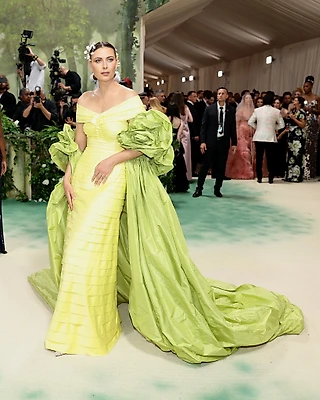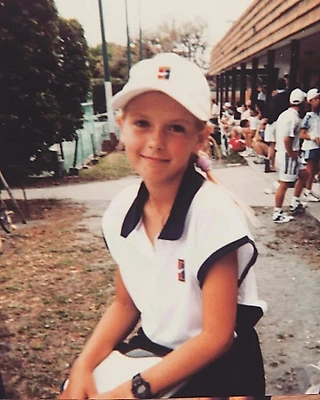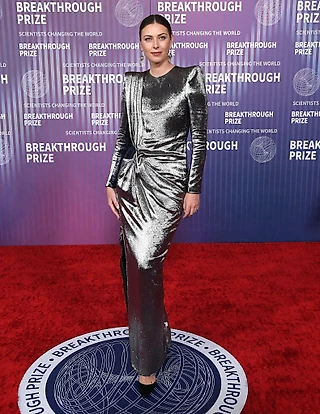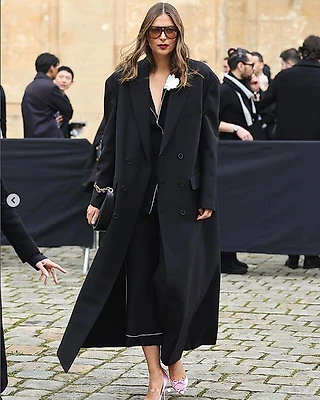Конференция ANA: слова Марии
Что сказала Мария?
Не нашел полный текст интервью Марии на одном месте, пришлось по кускам собирать...
RANCHO MIRAGE, Calif. -- Maria Sharapova believes that she succeeded in a fight against injustice when she managed to get her doping ban reduced to 15 months.
The five-time Slam winner and former world No. 1 plans to return to competition next month at Stuttgart. She told a women's sports conference Tuesday that she didn't believe a two-year suspension was fair after she tested positive for meldonium at the 2016 Australian Open.
The Russian-born Sharapova said that although she's closer to the end of her career than the beginning, she didn't want to finish "on someone else's terms," and she "fought hard for the truth to be out."
"It gave me time to live. I went to Coachella last year, and I said, 'Wow, there are 120,000 people here doing drugs I haven't heard of.' This time away from the game made me realize I can live without the game," Sharapova said.
"I realized I had a family I could spend months with at a time"
Sharapova, who is scheduled to make her return next month at the Porsche Grand Prix in Stuttgart, Germany, also said she has discovered a newfound hunger for tennis. After admitting that she considered retiring from the sport last year, when "I felt like my body was starting to let me down," she added, "I'm skipping Coachella because I have a day job again ... I'm at a stage where you're closer to the end than the beginning. And you want to end on your voice, your terms."
"When you love what you do, and you do it with passion and integrity ... then you know what you stand for and who you are, and that's why I fought so hard to get that back," Sharapova said.
"You always want to end your career or a chapter in your life on your terms and in your voice," Sharapova said. "And to be in a moment where you felt like it could have ended on someone else's terms was very difficult for me to accept. That's why I fought so hard for the truth to be out. You don't realize how much you love something, how much something means to you, until you lose it for some time."
"I learned that life is OK without tennis," Sharapova said. "Life can be OK, which is a scary thought, because when you've done something for so long, you always think of, 'Well, how am I going to feel when I don't have that?' It gave me a chance to realize that you're the one that creates your life, and you create your own opportunities."
Sharapova also revealed she has been training intensely for four months to get her momentum back. Tuesday was a rare day off, thanks to her trip from her beachside home near Los Angeles to the desert.
"In tennis, you lose a lot of hand-eye coordination," Sharapova said. "Practice is never the same as match play. It's really different to face someone on the other side of the net. It's a very different feeling."
"I don't know if there's much that I can control," Sharapova said. "I think what I can control, and what I always have controlled, is what I can do, and how I can go out there and how I can compete, and how I can manage my career and my time and what I do with it, and the way I play tennis. And that is bigger than any other word that I can ever say. I think actions speak so much louder than what we could ever talk about."
"You always want to end your career or a chapter in your life on your terms and in your voice," Sharapova said. "And to be in a moment where you felt like it could have ended on someone else's terms was very difficult for me to accept. That's why I fought so hard for the truth to be out. You don't realise how much you love something, how much something means to you, until you lose it for some time."
Видео:
Being temporarily banned from tennis was 'difficult': Sharapova
http://www.reuters.com/video/2017/03/28/being-temporarily-banned-from-tennis-was?videoId=371381627
"Although I'm at a stage or age in my career where you're closer to the end than your beginning, you always want to end a chapter in your life on your own terms, in your own voice," Sharapova told the ANA Inspiring Women in Sports conference at Mission Hills.
"That's why I fought so hard for the truth to be out".
Sharapova said she does not worry about the reception she will receive and is confident in her integrity."When you love what you do, and do it with passion and integrity and you work hard, and you work on court number 28 when no one is watching ... then you know what you stand for and you know who you are.
"When I'm out on court 28 and there's no one watching, that's when a lot of my trophies are being won," she said.
“I’ve been training quite hard for the past four months,” she said, adding it would likely take some time to pay off. “Practice is never the same as match play.
“But I know that my mind and my body still have the motivation to be the best tennis player I can be.”
Sharapova proud of her passion, integrity as doping ban ends
Maria Sharapova shows no remorse as she has doping ban lifted
Asked what 'stings' most about it, she told the host, ESPN's Julie Fouldy, that it was 'the part where something was taken away from you that you have done so passionately since you were a little girl.'
'As an athlete - there is a constant daily cycle in the a tennis life that is ten months out of the year, and a very short off season. It is a lifestyle and yes it is a choice and It becomes your life, and although that I am at a stage and an a ge in my career where you are closer to the end than to the beginning, you always want to end a career or chapter in your life on your terms, and in your voice.'
About 2020 Tokyo Olympics:
'I would love to sit here today and say yes. But it is hard to look that far...but of course to compete in another Olympics is an athlete's dream and I would love to be a part of that.'
Pressed on how she would cope with any naysayers, she calmly vowed to focus on herself alone.
'I don't think there is much I can control. What I can control and have always controlled is what I can do and how I can go out there, compete and manage my career and my time and what I do with it.
'That is bigger than any other word I can ever say - actions speak so louder than what we can ever talk about. That is what has always gotten through my career is tennis.
'Will it be difficult? Absolutely. But as a competitor you have expectations of what you can do, and for me I have always been very internal.' She is unwavering in her optimism about the comeback.
The Russian native said money wasn't her motivator.
'I don't think money can get you internal growth. All the stats, and numbers are relevant, but they don't make Jo or Amy happier. What makes me happier is that I am able to have a safe environment, whether my many future children are covered or my great grand children are secure and that brings happiness.
'Money is an interesting subject. Although it is a big part of our lives, it is not a life driver.'
>









И Вам надо знать, что когда Мария будет помолвлена кольцо будет на левой руке, не на правой.
:):):)
https://twitter.com/SpacePova/status/847071066199670785
Billie Jean King Retweeted Maria Sharapova
So great to see you!Billie Jean King added,
Maria SharapovaVerified account @MariaSharapova
Special day with amazing women at the @ANAinspiration Women’s Inspiring Conference @BillieJeanKing @Aly_Raisman
«Будет ли это тяжело? Абсолютно точно да. Ты много теряешь в координации глаз и рук, когда не можешь играть. Тренировки — это не то же самое, что игры, когда соперница стоит на противоположной стороне сетки.
Когда ты любишь то, чем занимаешься, делаешь это со страстью и искренностью, а рядом с тобой твоя команда, то ты становишься движущей силой. Ты знаешь, за что выступаешь и кем являешься. Я рада, что моя работа вернулась. Это здорово. В последние четыре месяца я упорно тренировалась. Я отчаянно боролась за правду. Вы не можете осознать, как сильно любите что-то, пока на время не потеряете этого», — цитирует Шарапову BBC.
Источник: BBC
Источник "Чемпионат"
Asked what ’stings’ most about it, she told the host, ESPN’s Julie Fouldy, that it was ’the part where something was taken away from you that you have done so passionately since you were a little girl.’
’As an athlete - there is a constant daily cycle in the a tennis life that is ten months out of the year, and a very short off season. It is a lifestyle and yes it is a choice and It becomes your life, and although that I am at a stage and an a ge in my career where you are closer to the end than to the beginning, you always want to end a career or chapter in your life on your terms, and in your voice.’
About 2020 Tokyo Olympics:
’I would love to sit here today and say yes. But it is hard to look that far...but of course to compete in another Olympics is an athlete’s dream and I would love to be a part of that.’
Pressed on how she would cope with any naysayers, she calmly vowed to focus on herself alone.
’I don’t think there is much I can control. What I can control and have always controlled is what I can do and how I can go out there, compete and manage my career and my time and what I do with it.
’That is bigger than any other word I can ever say - actions speak so louder than what we can ever talk about. That is what has always gotten through my career is tennis.
’Will it be difficult? Absolutely. But as a competitor you have expectations of what you can do, and for me I have always been very internal.’ She is unwavering in her optimism about the comeback.
The Russian native said money wasn’t her motivator.
’I don’t think money can get you internal growth. All the stats, and numbers are relevant, but they don’t make Jo or Amy happier. What makes me happier is that I am able to have a safe environment, whether my many future children are covered or my great grand children are secure and that brings happiness.
’Money is an interesting subject. Although it is a big part of our lives, it is not a life driver.’
Read more: http://www.dailymail.co.uk/news/article-4359134/Maria-Sharapova-shows-no-remorse-reflects-ban.html#ixzz4ciYms8rL
She added: “I’ve got my day job back. It’s great. I’ve been training quite hard for the past four months … Will it be difficult? Absolutely.
https://twitter.com/MRisingStar18/status/847044941062778880